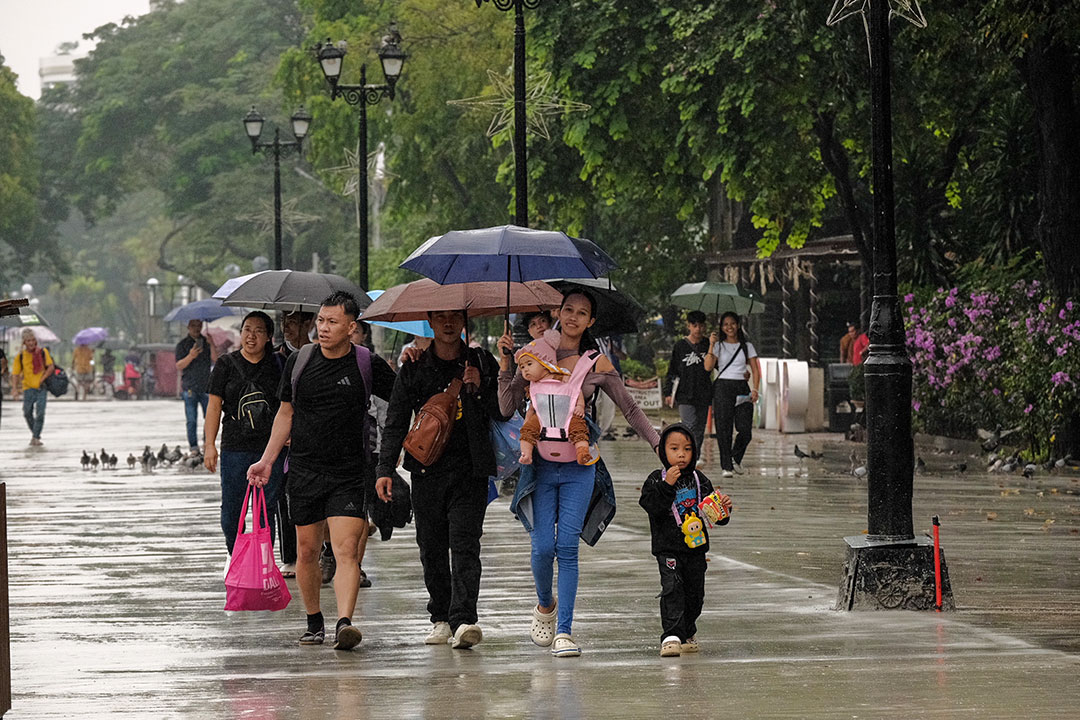
Medicine Cabinet
By Teodoro B. Padilla

Beyond delivering innovative medicines and therapies, the research-based pharmaceutical industry is deeply committed to enhancing the health and lives of Filipinos, particularly those marginalized by poverty, geographic isolation, or disaster. This commitment is exemplified through the efforts of the Pharmaceutical and Healthcare Association of the Philippines (PHAP) and its social responsibility arm, the PHAPCares Foundation.
Established in 2003, PHAPCares has consistently provided support to communities in need, conducting medicine access initiatives, humanitarian missions, and health education campaigns. These programs are carried out in partnership with National Government agencies, local government units (LGUs), and civil society organizations — especially in areas affected by conflict, disease outbreaks, and natural calamities.
In a country that faces an average of 20 typhoons per year — eight or nine of which typically make landfall — the work of PHAPCares is both timely and critical. According to the Philippine Atmospheric, Geophysical and Astronomical Services Administration (PAGASA), the Philippines is the most typhoon-prone country in the world. These weather events often bring heavy rainfall, flooding, and destruction, leaving vulnerable populations with urgent needs for medical assistance and basic supplies.
In response, PHAPCares coordinates with member companies to mobilize resources and deliver aid where it’s most needed. One such company is Astellas Pharma Philippines, which actively supports PHAPCares’ mission through funding and collaboration.
Under the Astellas Social Contribution Support Agreement, Astellas Philippines donated $25,000 to support PHAPCares’ typhoon relief operations. These funds were used to procure doxycycline — an essential antibiotic used to prevent leptospirosis and other waterborne diseases — for families affected by flooding in Biñan, Laguna. The contribution also enabled the distribution of hygiene kits to 500 families in the Bicol Region through the Social Action Center of the Diocese of Legazpi and helped preposition supplies for an additional 500 families in preparation for future emergencies.
“We believe that a company’s responsibility extends beyond delivering innovative treatments — it includes creating long-term value for society,” says Adam Bolitho, General Manager of Astellas Philippines. “Corporate social responsibility is central to how we operate because it aligns with our commitment to improving the health and well-being of people everywhere.”
Astellas integrates corporate social responsibility (CSR) into its core business strategy through three key pillars: Access to Health, Resilience and Sustainability, and Ethics and Compliance. The company invests in expanding access to healthcare by supporting initiatives that address treatment barriers in underserved communities. On the environmental front, Astellas is reducing its carbon footprint and promoting sustainable practices across its global operations. Internally, it maintains high standards for ethical conduct, transparency, and governance.
These principles are not just policies — they are put into action every day by employees who are empowered to make a difference. Through programs like Astellas Changing Tomorrow Day, a global volunteer initiative, thousands of employees contribute their time to service-based activities. In 2023 alone, more than 2,800 Astellas employees dedicated over 7,000 hours to community service efforts worldwide.
“We encourage our employees to take part in CSR activities, not just as a company initiative, but as a personal mission,” Bolitho adds. Employees are even given platforms to propose and lead their own CSR projects, further embedding a culture of compassion and responsibility within the organization.
Astellas’ collaboration with PHAPCares extends beyond emergency relief. Together, they are also supporting the rebuilding of the One Bonuan Satellite Health Center in Dagupan City, Pangasinan. This initiative will restore access to essential healthcare services for thousands of residents and is part of a broader effort to strengthen healthcare systems in geographically isolated and disadvantaged areas (GIDAs).
PHAPCares’ work in GIDAs involves designing tailored technical assistance to improve healthcare delivery systems. Through assessments and close coordination with LGUs, the Foundation supports enhancements in service delivery, healthcare workforce development, governance, financing, medicine access, and health information systems. Their humanitarian missions serve special sectors such as the elderly, abused women and children, orphans, and street children.
Astellas’ partnership with PHAPCares reflects the power of collaboration in amplifying impact. “PHAPCares brings deep local knowledge, strong community ties, and a shared commitment to healthcare equity,” Bolitho emphasizes. “By working together, we can co-create solutions that are both culturally relevant and sustainable.”
Indeed, the partnership exemplifies how private sector commitment, when aligned with community needs and values, can create lasting, meaningful change. Whether through disaster response, rebuilding efforts, or grassroots health initiatives, Astellas and PHAPCares are helping to bring healthcare closer to those who need it most — creating healthier, more resilient communities across the Philippines.
Teodoro B. Padilla is the executive director of Pharmaceutical and Healthcare Association of the Philippines which represents the biopharmaceutical medicines and vaccines industry in the country. Its members are in the forefront of research and development efforts for COVID-19 and other diseases that affect Filipinos.